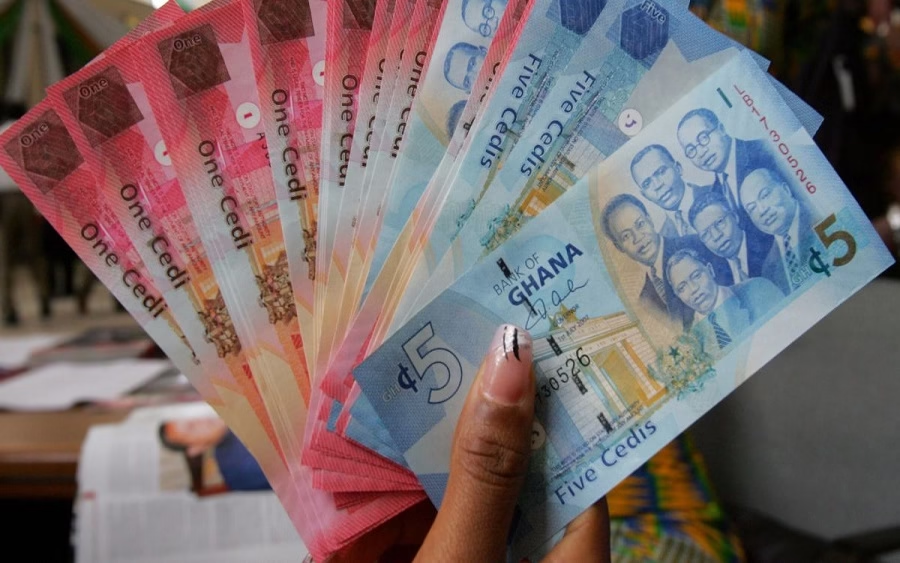The Ghanaian cedi has experienced significant depreciation under the New Patriotic Party (NPP) government, led by President Nana Akufo-Addo, which has been in power since 2017. The decline of the cedi has been attributed to a variety of factors, both domestic and international, that have exacerbated Ghana’s economic challenges.
Key Factors Contributing to the Cedi’s Decline
- High Public Debt and Fiscal Deficits: Ghana’s public debt has increased substantially over recent years, reaching over 70% of its GDP. This high debt burden has increased debt servicing costs and eroded investor confidence. As debt grows, the government relies on more borrowing, leading to increased demand for foreign currency and contributing to the depreciation of the cedi.
- Balance of Payments Issues: Ghana has been grappling with a persistent trade imbalance, importing more goods than it exports. While the country’s main exports—gold, cocoa, and oil—are important, fluctuations in global prices for these commodities impact revenue. When exports underperform or global commodity prices decline, Ghana’s foreign reserves weaken, increasing pressure on the cedi.
- Inflation and Policy Decisions: Inflation has remained high, with the cedi losing value as the cost of goods and services rises. The government’s expansionary policies, such as increased public spending, have sometimes intensified inflation. In response, the Bank of Ghana has periodically raised interest rates, but these measures have had limited long-term impact on the currency’s stability.
- COVID-19 Pandemic: The COVID-19 pandemic exacerbated Ghana’s economic vulnerabilities, impacting tourism and trade. The government introduced relief packages, which increased spending and borrowing, leading to more debt. Additionally, as global economies contracted, remittances—a key source of foreign currency for Ghana—declined, putting further pressure on the cedi.
- External Economic Pressures: Global factors, such as U.S. dollar strength, have made it challenging for the cedi to maintain stability. A strong dollar attracts investors to dollar-denominated assets, causing capital flight from Ghana and other emerging economies, further weakening their currencies.
- Structural Economic Issues: Ghana’s reliance on imports for consumer goods, fuel, and essential inputs for its industries means it needs a steady supply of foreign currency. Without robust industrialization or diversification in exports, the economy remains vulnerable to exchange rate fluctuations.
Government and Central Bank Interventions
The NPP government, along with the Bank of Ghana, has introduced measures to stabilize the cedi, including:
- Raising policy interest rates to curb inflation and make the cedi more attractive.
- Securing external support through IMF programs, which aim to provide short-term relief and help manage debt levels.
- Increasing foreign reserves through international bonds and gold purchase programs.
While these measures have provided temporary stability, they have not fully addressed the structural weaknesses that contribute to the cedi’s long-term decline.
Political and Social Implications
The fall of the cedi has been a contentious political issue, with opposition parties, particularly the National Democratic Congress (NDC), criticizing the NPP government’s economic management. The depreciation has affected the cost of living, with imported goods becoming more expensive, fueling public dissatisfaction and inflation. The falling cedi also impacts local businesses reliant on imports and has implications for job creation and economic growth.
In summary, while external factors like global inflation and the pandemic have played roles, the depreciation of the cedi under the NPP government is largely due to fiscal policy choices, debt accumulation, and a reliance on imports. Long-term stability may require structural reforms that enhance local production, export diversification, and sustainable fiscal policies.



